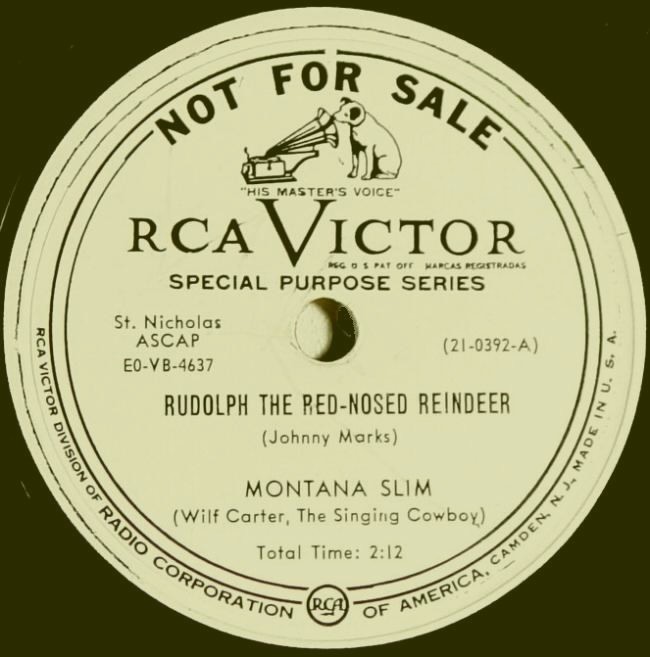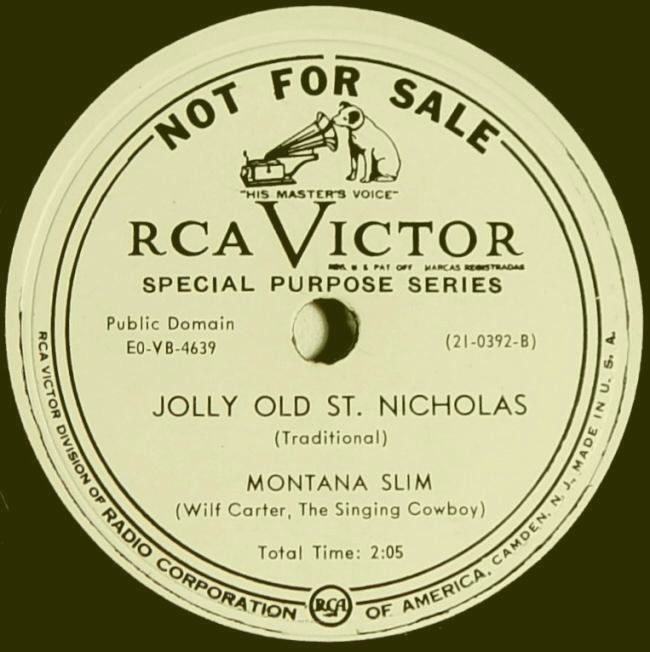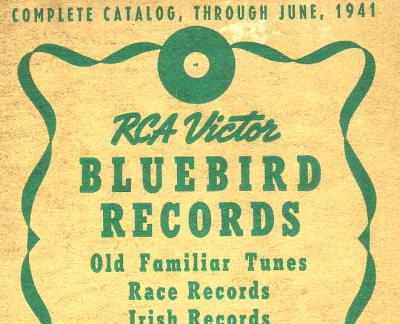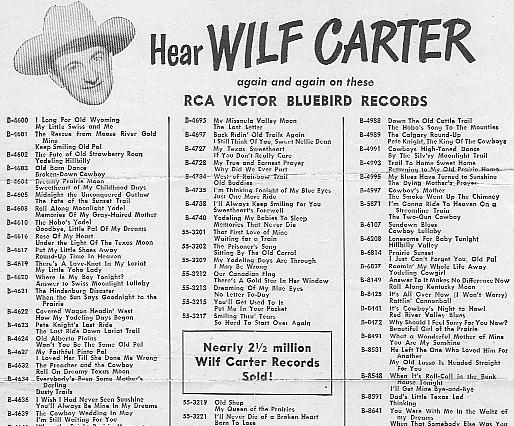
A: Rudolph the Red-Nosed Reindeer (above)
Montana Slim: 78rpm record RCA Victor 21-0392
B: Jolly Old St. Nicholas (below)

Library stock number A226
Fieldwood Heritage Society
Canning, Kings County, Nova Scotia


|
This record (above) is an uncommon example of a 78rpm vinyl
disc. For decades, all 78rpm records were made of shellac, a heavy, brittle, easily-broken material. Then, in 1942-43, shellac suddenly became scarce because of disruptions due to WW2. For some years before 1940, record manufacturers had been experimenting with materials other than shellac for making records. When shellac became hard-to-get and expensive, these alternative materials were pressed into production. The best of these alternative materials was polyvinyl chloride (PVC), usually called "vinyl". This change of material came only a few years before 78s were replaced by 45s and 33s. While 45s and 33s were made of vinyl from the beginning, 78s made of vinyl were produced for only a few years. Most of the vinyl 78s now surviving are children's records, which were the main focus of vinyl 78 production after the mid-1940s. The nearly-unbreakable aspect of vinyl records was obviously a big advantage for records made for children to handle. |
| Wilf Carter's records |


![]()
W3C HTML Validation Service
http://validator.w3.org/
![]()
W3C CSS Validation Service
http://jigsaw.w3.org/css-validator/
|
This FHS website is generously hosted by Ednet.
Nova Scotia Department of Education |